Elvis: Why is Tom Hanks suddenly playing a proper screen villain?
Baz Luhrmann’s ‘Elvis’ opens in cinemas this week, with Hanks playing Elvis Presley’s manager. It’s not his usual saintly role but, says Geoffrey Macnab, it’s just one of many casting stunts used by filmmakers to play with audience’s expectations
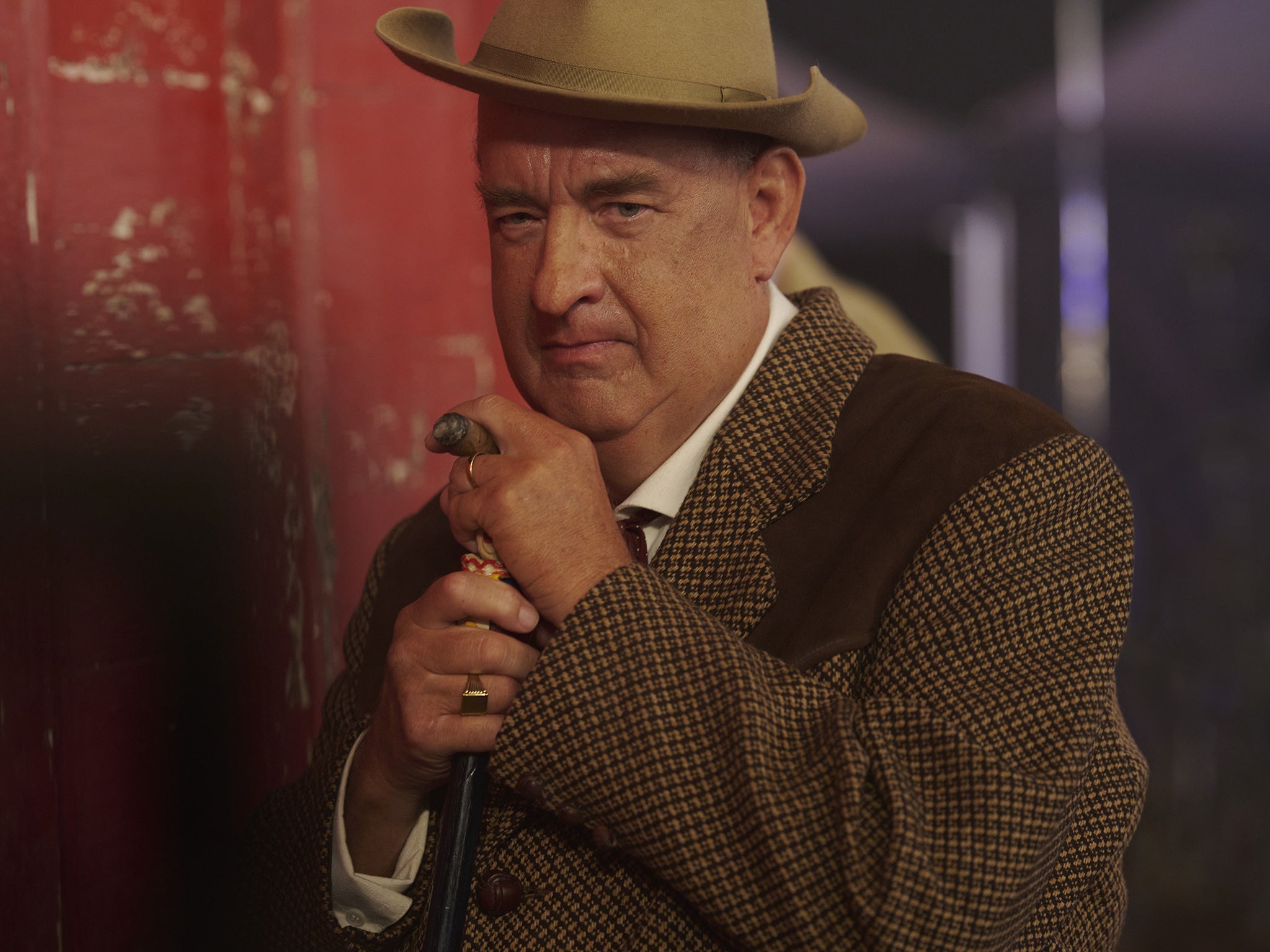
Viewers might be startled by the vision that greets them at the beginning of Baz Luhrmann’s Elvis – out in UK cinemas this week. The grotesque, overweight, sallow-skinned, sickly old-timer claiming that, no, he didn’t kill Elvis Presley is Tom Hanks.
The Oscar-winning star, who played the holy innocent in Forrest Gump (1994) and the heroic lawyer and AIDS victim taking on the establishment in Philadelphia (1993), is seen here in a very different light. We are so used to Hanks playing selfless heroes like the airline pilot coping with disaster in Clint Eastwood’s Sully (2016), or lovable everyman types such as the bereaved husband in Nora Ephron’s hit romcom, Sleepless in Seattle (1993), that it startles us when he is not the epitome of onscreen decency.
In 1971, Richard Attenborough was cast as the necrophiliac English serial killer, John Christie, in Richard Fleischer’s macabre biopic, 10 Rillington Place. Watching Hanks as the sleazy, corrupt Colonel Tom Parker, signing dodgy contracts on Elvis’s behalf with mobster casino owners in Vegas, is almost as much of a surprise as seeing Attenborough’s Christie drugging and throttling young women.
That’s because, like Attenborough, Hanks is venerated and loved. If Hanks is even caught swearing in public – as he was last week when an over-zealous fan bumped into his wife outside a restaurant – the media reacts in dismay.
Why, then, would Luhrmann be so perverse as to ask Hanks to take on Parker, the showman and swindler who managed Elvis?
Whether the Colonel even was a Colonel is a moot point. When he first encounters Elvis in the movie, he is a shady fairground promoter and music manager with an eye for the main chance. He notices that everybody is listening to Elvis’s early hit, “That’s Alright”, and discovers that the singer is white. Elvis, he realises, is potentially the most lucrative meal ticket he will ever come across.
Luhrmann signals, though, that this isn’t going to be the typical Hanks performance right from the start by ageing him and adding on the pounds. The Colonel’s corpulence makes him seem all the more grotesque morally.
“I am not interested in malevolence; I’m interested in motivation,” Hanks told the New York Times in a recent interview to support the release of Elvis. In his interpretation, Parker is cynical and opportunistic. His business decisions make Elvis rich and himself richer but lead inexorably to the singer’s destruction. He allows Elvis to become hooked on prescription drugs and makes him explore every crass commercial opportunity available, whether selling Elvis-branded toys, electric goods or even Christmas jumpers. Elvis can’t tour abroad because Parker is actually Dutch and is in the US illegally. If he leaves the country, he’s terrified he won’t be allowed back in.
Look through film history, though, and you’ll find plenty of other occasions when directors have deliberately chosen the most saintly actors to portray the most diabolical characters.
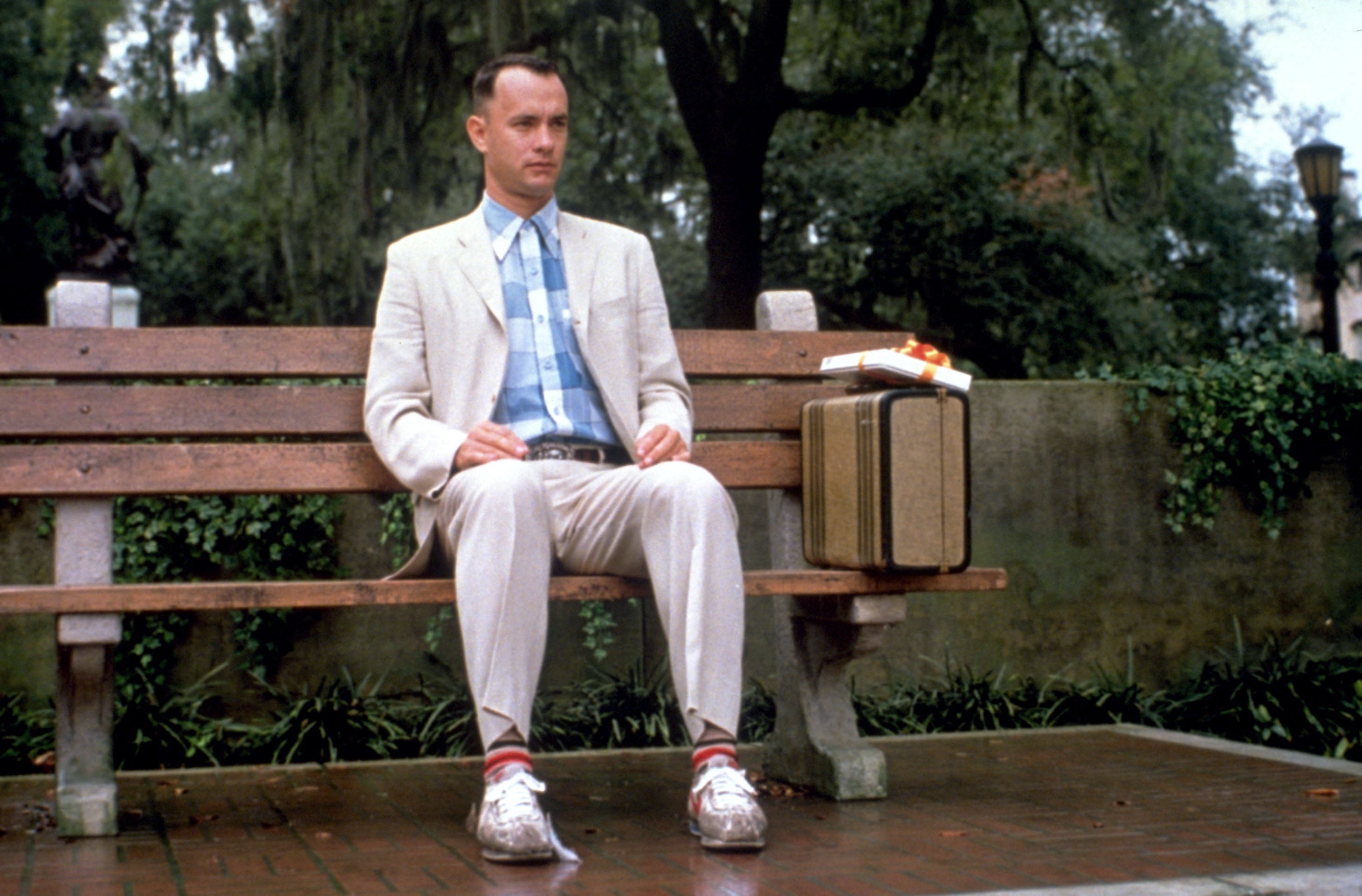
Why did Italian spaghetti western director Sergio Leone choose Henry Fonda, the blue-eyed American everyman hero, to play the meanest, most sadistic killer imaginable in Once Upon a Time in The West (1968)? What led lovable clown Robin Williams – the star of Mrs Doubtfire and Jumanji – to play the clammy-looking and very sinister photo technician in Mark Romanek’s dark thriller, One Hour Photo (2002)?
There is Tony Curtis, the affable star of Billy Wilder’s Some Like It Hot, popping up as a deranged mass murderer Albert DeSalvo in Fleischer’s The Boston Strangler (1968); the revered British actor Alec Guinness thinking it was a good idea to play the moustached, floppy-haired Adolf Hitler in The Last Ten Days (1973); and the Oscar-winner Octavia Spencer, the likeable and resilient heroine confronting everyday racism and sexism in The Help (2011) and Hidden Figures (2016), terrorising all those teenagers in Tate Taylor’s horror film, Ma (2019).
On one level, these are examples of stunt casting. Filmmakers are giving audiences a big jolt by playing with their expectations. Actors we think we know and can trust suddenly show extreme malevolence.
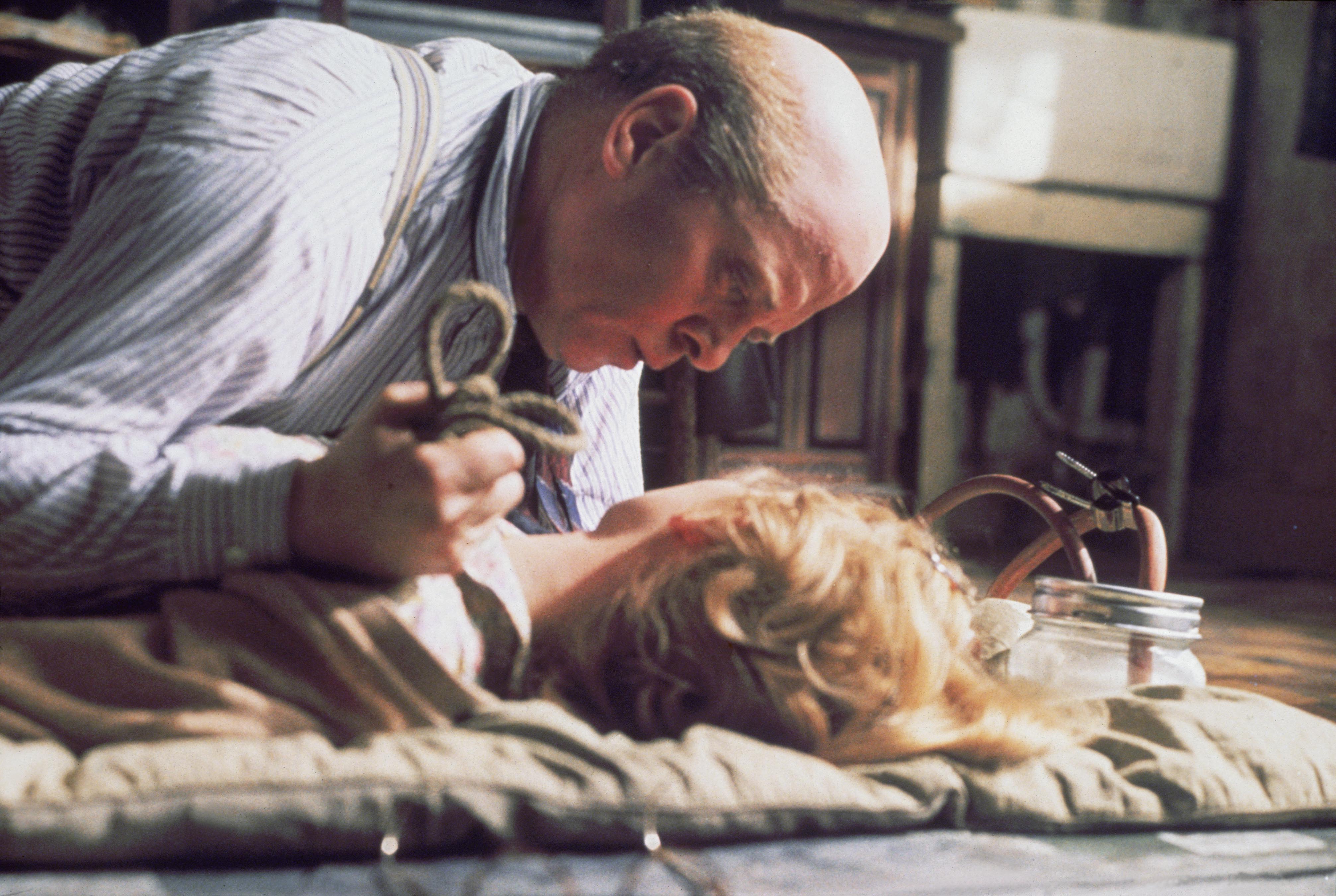
In many of his films, Alfred Hitchcock would hint at the baser instincts of characters played by popular leading men like James Stewart or Cary Grant. Were they voyeurs or killers or sexual sadists? Hitchcock teased viewers with such questions.
Certain actors become the equivalent of national monuments. For some directors, the temptation to put graffiti on those monuments is overwhelming. As Christopher Frayling writes in his biography of Leone, the Italian filmmaker wanted to “shock audiences” with the contrast between the character Fonda played in Once Upon a Time in the West and “Fonda’s face, a face which for so many years has symbolised justice and goodness”. It was as if Leone was turning Abraham Lincoln into Charles Manson.
At the same time, a film is likely to have an extra emotional depth if the villain is portrayed in a nuanced and complex way. Watching Gone Girl (2014), you didn’t expect Rosamund Pike’s Amy, the beautiful, saintly wife who has gone missing on the day of her fifth wedding anniversary, to be revealed as the scheming villainess. The closest Pike had come previously to the dark side was playing the treacherous Miranda Frost in the James Bond movie, Die Another Day (2002), but that was tongue in cheek, close to kitsch, and didn’t prepare viewers for the extent of her machiavellian scheming against her husband, the hapless Ben Affleck, in Gone Girl.

There is a similar measure of surprise when Denzel Washington’s detective in Antoine Fuqua’s Training Day (2001), who is showing younger officer Ethan Hawke the ropes, is revealed as a bullying, murderous psychopath. He is infinitely more dangerous than any of the drug dealers and killers ostensibly on the other side of the law.
“King Kong ain’t got no shit on me!” The detective yells at a crowd gathered around him just as his power is ebbing away.
Washington is a towering figure in US cinema who has received multiple Oscar and Golden Globe nominations. He has played historical figures like anti-apartheid activist Steve Biko in Attenborough’s Cry Freedom (1988) and the radical civil rights leader in Spike Lee’s Malcolm X (1992). Fans respect those performances but they’re still likely to have far more vivid memories of him as the scheming cop with the volcanic temper than of all the other wholesome heroes he has played.
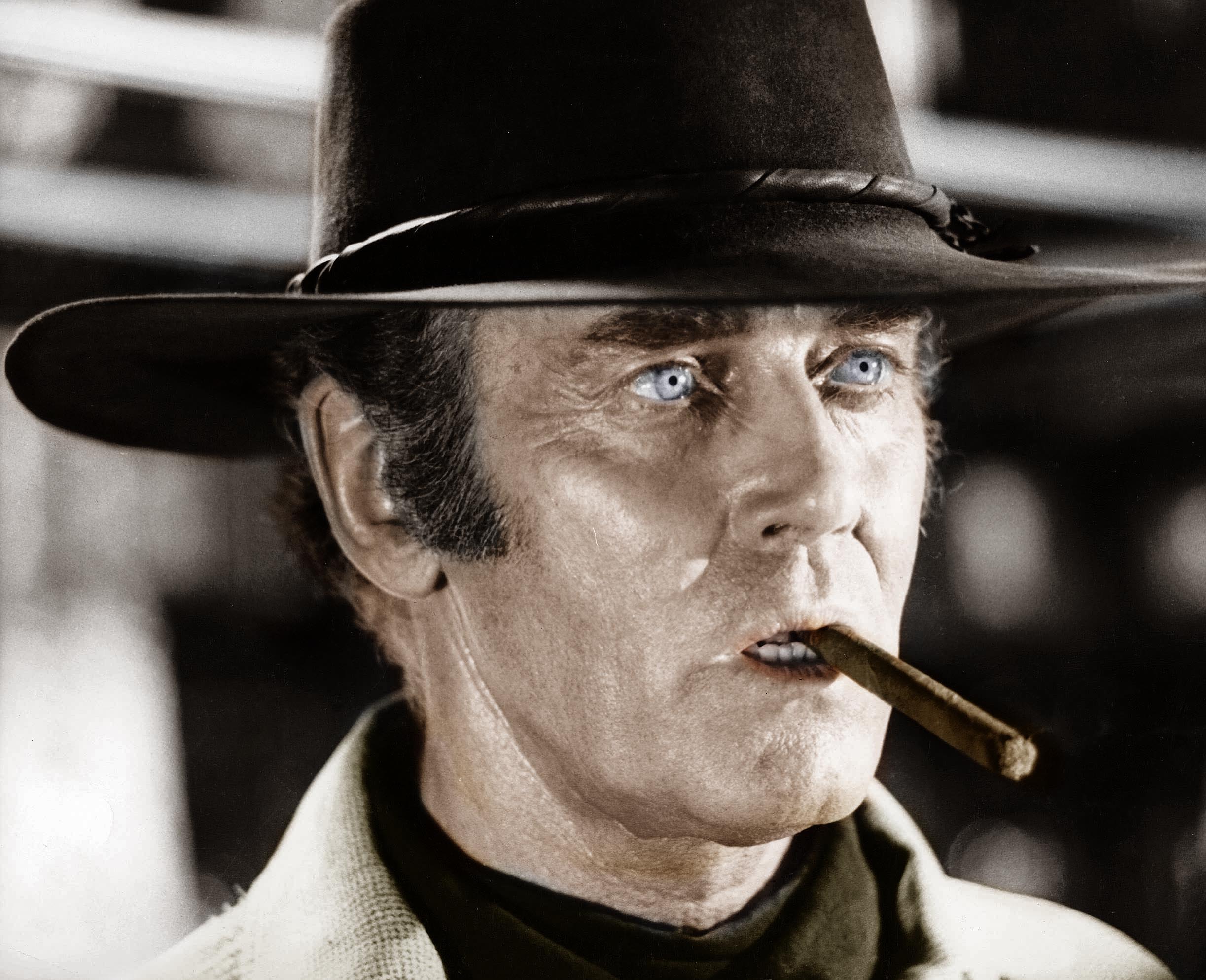
The same applies to Al Pacino. He is one of the great method stars, but the one scene fans savour the most in all his work is his gangster anti-hero Tony Montana going out in a hail of bullets at the end of Scarface (1983). Yes, he was good – and semi-villainous – in The Godfather films and Dog Day Afternoon but these performances pale next to the pyrotechnics in Scarface, when he is blasting away with his machine gun before himself being riddled with bullets.
The attraction of playing villains is obvious. It can be lucrative. Angelina Jolie enjoyed her biggest box office success when she embraced the dark side and played the evil queen in Maleficent (2014). It’s a way for squeaky clean actors to show a new dimension – and often win awards in the process. It’s fun too. Meryl Streep looks as if she is enjoying herself far more when she is playing the supremely caustic and vicious magazine editor in The Devil Wears Prada (2006) than when she was suffering for her art, playing all those self-righteous types with funny accents in some of her earlier film roles.
On certain occasions, stars caught up in scandals can repair their reputations by playing villains. It may be hard for audiences currently to accept Will Smith as a conventional leading man after his assault on comedian Chris Rock at this year’s Oscars, but this could free him to play more complex and less clean-cut characters.
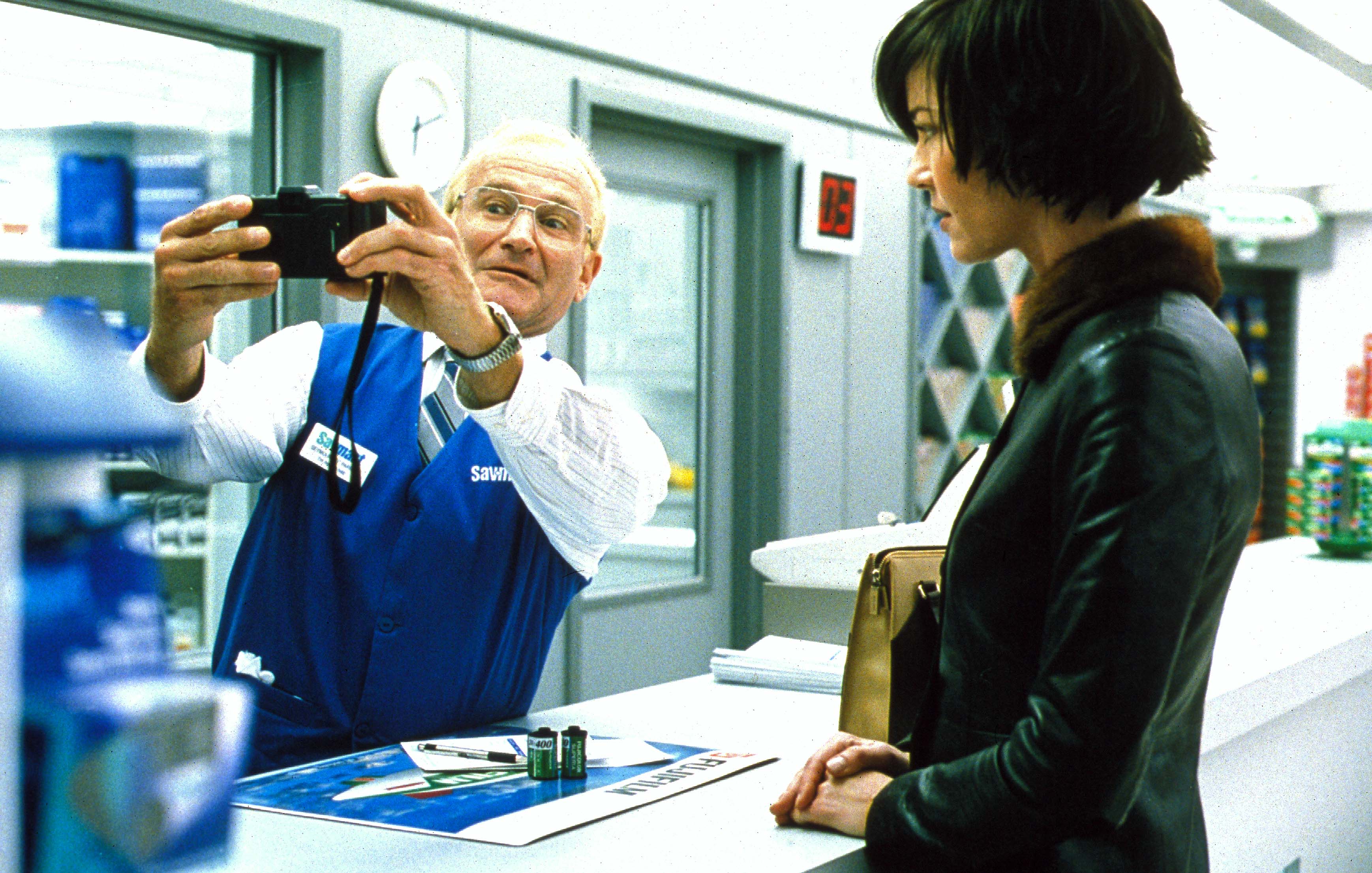
Long before his serial killer in 10 Rillington Place, a very fresh-faced Attenborough had starred as the razor-wielding gang leader Pinkie Brown in the Boulting brothers’ adaptation of Graham Greene’s Brighton Rock (1948). Late in his life, Attenborough was still haunted by a review in the Daily Express in which the critic Leonard Mosley had referred to him as “a spotty and repellent adolescent” and had suggested that “the film version of Graham Greene’s Pinkie is as close to the real thing as Donald Duck is to Greta Garbo”.
In the case of Luhrmann’s Elvis, there is such a reservoir of goodwill toward Hanks that he can take on a scoundrel like Parker without denting his reputation. Arguably, the problem with his performance is that it isn’t quite villainous enough. In his hat and safari jacket, he has a cartoonish, folksy charm. He is often the butt of the joke, an exasperating figure more than an evil one. Hanks was a mob enforcer in Sam Mendes’s Road to Perdition (2002) and has occasionally strayed from type in other roles, but that’s not enough. If he really wants to prove his credentials as a proper screen villain, he now surely has got to go the full Attenborough and play a serial killer.
‘Elvis’ is in cinemas
Join our commenting forum
Join thought-provoking conversations, follow other Independent readers and see their replies
Comments


Bookmark popover
Removed from bookmarks